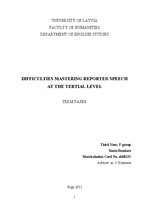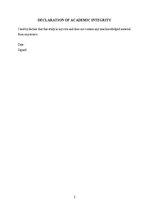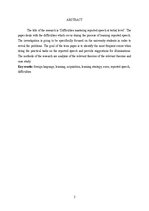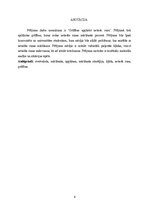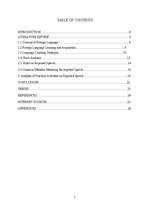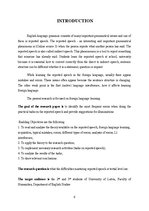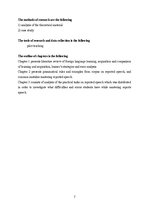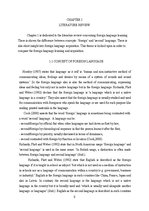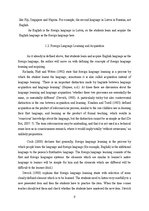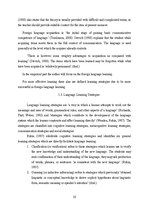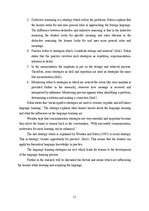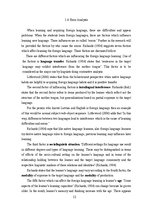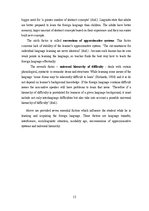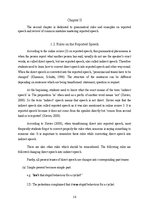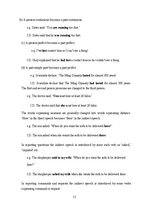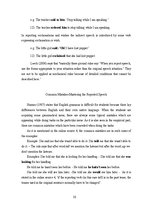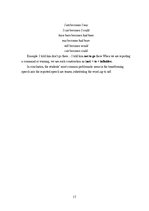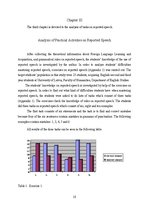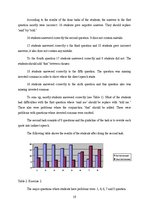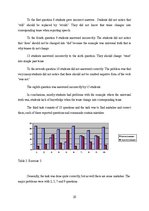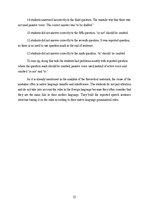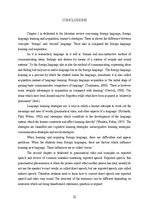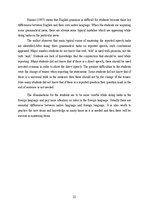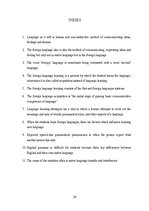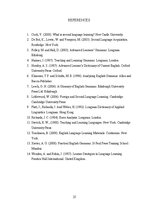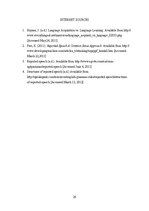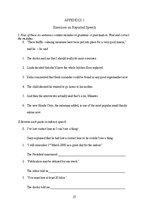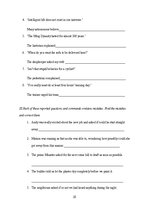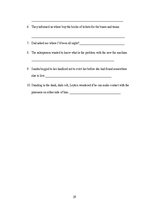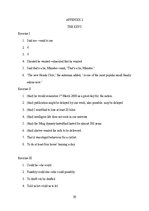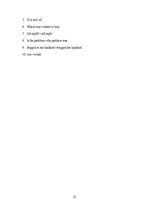-
Difficulties Mastering Reported Speech at Tertiary Level
| Nr. | Sadaļas nosaukums | Lpp. |
| INTRODUCTION | 6 | |
| LITERATURE REVIEW | 8 | |
| 1.1. | Concept of Foreign Language | 8 |
| 1.2. | Foreign Language Learning and Acquisition | 9 |
| 1.3. | Language Learning Strategies | 10 |
| 1.4. | Error Analysis | 12 |
| 2.1. | Rules on Reported Speech | 14 |
| 2.2. | Common Mistakes Mastering the reported Speech | 16 |
| 3. | Analysis of Practical Activities on Reported Speech | 18 |
| CONCLUSIONS | 22 | |
| THESES | 23 | |
| REFERENCES | 24 | |
| INTERNET SOURCES | 25 | |
| APPENDICES | 26 |
CONCLUSIONS
Chapter 1 is dedicated to the literature review concerning foreign language, foreign language learning and acquisition, learner’s strategies. There is shown the difference between concepts- ‘foreign’ and ‘second’ language. There also is compared the foreign language learning and acquisition.
As it is researched, language as it self is ‘human and non-instinctive method of
communicating ideas, feelings and desires by means of a system of sounds and sound systems.’ So the foreign language also is also the method of communicating, expressing ideas and feeling but only not in native language but in the foreign language. The foreign language
learning is a process by which the student learns the language; sometimes it is also called acquisition instead of language learning. Foreign language acquisition is ‘the initial stage of gaining basic communicative competence of language’ (Tomlinson, 2008). ‘There is however
some weighty advantages to acquisition as compared with learning’ (Stevick, 1988). The items which have been learned may be forgotten while what have been acquired is ‘relatively permanent’ (ibid.).
Language learning strategies are ‘a way in which a learner attempts to work out the
meanings and uses of words, grammatical rules, and other aspects of a language’ (Richards, Platt, Weber, 1992) and ‘strategies which contribute to the development of the language
system which the learner constructs and affect learning directly’ (Wenden, Rubin, 1987). The strategies are classified into cognitive learning strategies, metacognitive learning strategies, communication strategies and social strategies.
When learning and acquiring foreign language, there are difficulties and appear
problems. When the students learn foreign languages, there are factors which influence learning new language. These influences are so called ‘errors.’…
The title of the research is ‘Difficulties mastering reported speech at tertial level’. The paper deals with the difficulties which occur during the process of learning reported speech. The investigation is going to be specifically focused on the university students in order to reveal the problems. The goal of the term paper is to identify the most frequent errors when doing the practical tasks on the reported speech and provide suggestions for illuminations. The methods of the research are analysis of the relevant theories of the relevant theories and case study.

